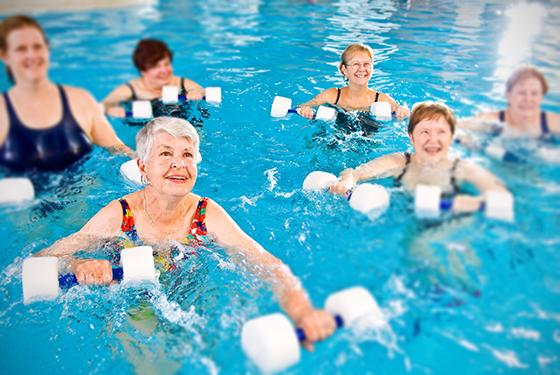
Exercise more powerful than drugs for reversing cognitive decline.
The human brain appears to be no different than rest of the body when it comes to reaping the benefits of regular exercise. Results from recent Vancouver Coastal Health Research Institute studies led by Dr. Teresa Liu-Ambrose, Canada Research Chair in Physical Activity, Mobility, and Cognitive Neuroscience, and researcher at Djavad Mowafaghian Centre for Brain Health and Centre for Hip Health, consistently present a fairly simple notion: exercise does the brain a whole lot of good.

“Regular physical activity is very important not just for physical function but ultimately for brain health, including for brain structure and cognitive performance,” says Dr. Liu-Ambrose, Director of the Aging, Mobility, and Cognitive Neuroscience Laboratory at the UBC. Her latest study, “Aerobic Exercise Increases Hippocampal Volume in Older Women with Probable Mild Cognitive Impairment: A 6-Month Randomized Controlled Trial”, was recently published in the British Journal of Sports Medicine and examined the role of exercise in promoting brain health among older women (ages 70 to 80) with mild cognitive impairment or moderate dementia.
The study showed that with aerobic training twice per week, and with gradual progression, there were significant increases to the brain’s hippocampal volume.
The hippocampus is the memory region of the brain and significant shrinkage or atrophy of this region is typically associated with Alzheimer’s disease or aging.
“Essentially, exercise reverses the pattern of decline commonly seen with aging and dementia,” says Dr. Liu-Ambrose. “The magnitude of benefit we’re seeing across these multiple outcomes exceed any sort of magnitude of benefit observed in pharmaceutical agents.”
“We designed this study because the majority of past studies in this area have focused on healthy older adults rather than older adults who are at greater risk of dementia,” adds Dr. Liu-Ambrose. “Also, the majority of research in this field has looked at aerobic exercise, so with this particular study we wanted to look at both aerobic exercise and resistance training. Overall, we are observing that while both types of exercise training benefit the brain – the benefits are different. Thus, combined exercise training may be the best approach for cognitive and brain health.
Doses of exercise for older adults manageable, effective
Often people mistakenly assume that exercise for individuals with mild cognitive impairment or moderate dementia is unmanageable or too strenuous, preventing them from exercising or participating in other physical activities.
“The doses we’re talking about in our trials are quite manageable,” explains Dr. Liu-Ambrose. “And if caregivers want to go with individuals, that usually makes the whole experience more enjoyable.”
“There is no effective drug therapy for dementia either in deterring its progress or treating it. Period.,” Dr. Liu-Ambrose adds. “This is why there has been huge interest in looking at alternative strategies. From the collective evidence, exercise seems to be a key strategy we should all consider.”


